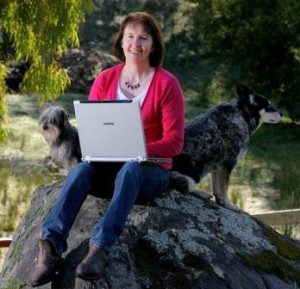 1. Who are the short fiction authors you admire (Australian or otherwise, alive or dead)?
1. Who are the short fiction authors you admire (Australian or otherwise, alive or dead)?
I admire Cate Kennedy for the quiet way she digs deep into a story and, almost without you noticing, takes you somewhere you weren’t expecting. I’ve just read Ryan O’Neill’s collection, The Weight of a human heart and thoroughly enjoyed that, too.
-
2. What is the most memorable short story you have read? And why does it stand out for you?
That’s a tricky one. The one that first springs to mind (out of many) is Ryan O’Neill’s ‘The Beginning of the Sentence’.In this story he plays with form in a way that perfectly reflects the subject matter of the story and adds hugely to its impact. I also admire the way he uses humour in such an understated way that makes it all the more effective.There isn’t enough humour in short story writing.
3. What do you like about the short story form?
The limitations of length and scope perversely give you more freedom than a novel. A short story allows you to get out the microscope and have a really good look.
4. How would you describe your own writing?
I would describe my writing as observational, often with an affectionate cynicism. I like to write with a kind of secret admiration about people who fall short even when they try really hard to succeed.
5. Which of your stories are you most fond of right at this moment and why?
I have a story which takes a close look at a character from the novel I’m writing. I feel I’ve caught the voice exactly as I wanted. I guess you’re always most fond of your most recent story. No-one else has agreed with me yet as it’s still in the revolving door of rejection at the moment.
6. Where do the ideas for your stories come from? (Take us through an example)
To use Flat Daddy as an example, the idea came from an article in the Good Weekend magazine, which briefly explained the concept of the Flat Daddy. A Flat daddy is a life-sized mounted and cut out photos of serving US soldiers that families can keep at home while their husband, father or son is on active service. As usual, I wrote the first sentence and then followed where it and subsequent sentences took me. It ended up with two voices, a child and her mother, something that evolved as I wrote.
7. What is your writing process – from idea to publication? (Do you go it alone or are others involved?)
On my own. Occasionally if I have a story that I’m not happy with but can’t put my finger on why, I’ll ask my writing buddy, Jane Downing, to tell me what’s wrong.
8. Do you feel the short story form is valued in Australia? What makes you say this?
It’s valued by the people who value it, which is to say something and nothing. It’s not mainstream and never will be but it has its devotees. I do think it will adapt very well to the varied world of digital publishing, better than other fiction and nonfiction forms, perhaps.
9. How do you feel about your work being published in non-print forms such as digital and audio?
I think it’s brilliant! The more markets writers have available to them the better. Who could complain about that?
10. What advice would you like to offer Spineless Wonders?
Keep on doing what you’re doing!
Louise D’Arcy lives on a small property near Yackandandah, NE Victoria. She has been writing for 15 or so years and has had more than 30 stories published in journals and anthologies including Best Australian Stories, Sleepers Almanac and Overland. In 2009, she won the Albury City Library Short Story competition for the second time and in 2010 she won The Age Short Story Award.
You can hear Louise reading her story, Flat Daddy here
